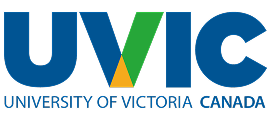Comprehensive Overview of Canada
Canada hosts more than 800,000 foreign study-permit holders each year and has some of the world’s top 100 universities, with research-intensive and career-focused programs across the board. Canada is an officially bilingual English- and French-speaking nation, offering academics as well as daily life in both languages. Several intakes in Fall (September), Winter (January), and Summer (May) offer flexibility in application timetables. Students must secure a Canada Study Permit by being admitted at a designated learning institution (DLI), demonstrating sufficient finances, and meeting health and character requirements. Living costs average CAD $600–$1,200 per month (excluding rent), and students can work up to 24 hours/week during term and full-time during breaks. Sources of funding range from Global Affairs Canada scholarships and grants, to university scholarships and awards, to private sector sponsors.
| Category | Details |
|---|---|
| Language | English and French (both official); most in English, with French in Québec and in New Brunswick. |
| Required Exams | English language test: IELTS, TOEFL, or PTE; GRE/G may be required. |
| Degrees Available | Undergraduate (bachelor's), master's, doctoral (PhD), diplomas, certificates, and vocation programs in diverse fields. |
| Intake Periods | The intake periods are September (Fall), January (Winter) and May (Summer), although some institutions offer additional intakes. |
| Student Visa | Submit application through IRCC online: Proof of enrollment (CoE), proof of finances, biometrics, medical exam, and police certificate. |
| Funding Sources | Government scholarships (e.g., Canada-ASEAN), university awards, corporate and private sponsorships. |
Key Reason to Study in Canada
Canada is home to unique educational institutions and world-class research infrastructures. This makes it a dreamy abode for students from all around the globe who come here to receive the latest education fused with research and industry partnerships. Canada has an awesome multicultural fabric—over 200 languages are spoken there. This makes for a friendly atmosphere for international students to network and form international ties. Beyond the classroom, the beautiful natural scenery of Canada includes everything from the Rocky Mountains to Niagara Falls and offers unmatched natural beauty and possibilities for outside activity.
Partnered with 500+ Trusted Universities Worldwide
Student Visa Requirements
- Eligibility: Have an acceptance letter from an DLI, exhibit CAD $10,000 + tuition/annum in family and personal finances, meet health, character, and biometrics requirements.
- Application: Online through Immigration, Refugees and Citizenship Canada (IRCC); processing times vary by visa office—apply as soon as possible after receiving your letter of acceptance and check current times on IRCC’s website.
- Validity: Typically valid for the length of the program + 90 days to prepare to leave or apply for a Post‑Graduation Work Permit (PGWP).
Cost of Living & Budgeting
- Monthly spending: CAD $600-800 for living expenses and food (excluding rent).
- Annual Budget: Aside from tuition, budget CAD $15,000 to $25,000 annually for living expenses, based on the city (i.e., Toronto and Vancouver at the higher end).
- Saving Tips: Transport, dining, and cultural events are made accessible with student discounts.
Accommodation Options
- On-campus housing: Residential colleges and dormitories facilitate campus life and accessibility.
- Off-campus housing: Private apartments or shared apartments afford independence; shop in advance to secure reasonable housing.
- Homestay: Stay with a Canadian host family to directly experience language skills and local way of life.
Work & Internship opportunities
During studies, students can work a maximum 24 hours/week off-campus without a work permit, and full-time during the scheduled breaks. Upon graduation, students can apply for a available Post-Graduation Work Permit (PGWP) of a maximum of three years, to facilitate Canadian work experience and potential permanent residence opportunities.
Get the Answers You Need for Studying in Canada
Is Canada calling out your name? Learn more about this amazing country and get started. Below are some of the most asked questions on studying in Canada:
Admissions at most universities require the IELTS, TOEFL, or PTE score to demonstrate English proficiency.
The time required for processing may differ by visa processing offices, so applicants must apply as soon as possible after acceptance, checking updates on IRCC's processing-time tool.
Students can work off-campus for 24 hours a week in studies, while full-time during breaks without going through a separate work permit.
From undergraduate programs and master's and doctoral level degrees to diplomas, certificates, and vocational programs, Canada welcomes students from all disciplines.
Yes, Global Affairs Canada and EduCanada provide scholarships (e.g., Canada-ASEAN, Global Skills Partnerships) of their own, while many universities provide merit-based scholarships.











